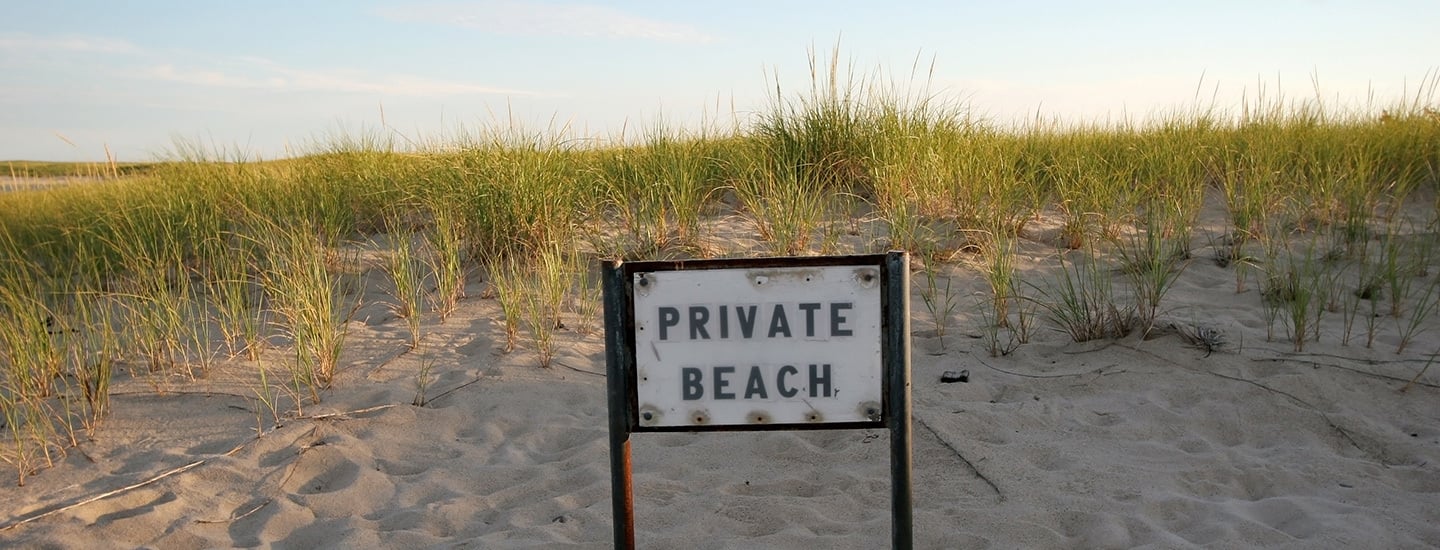
The public health crisis from COVID-19 has presented significant challenges throughout the world and nation during 2020. In addition to COVID’s health burdens and tragedies, the need for people to stay home and social distance has had extensive consequences on the public’s ability to cope and recreate in open public spaces, including at the beach. In March and April, as widespread stay-at-home orders were mandated to prevent transmission of the virus, many state and local jurisdictions began imposing park, trail, and beach closures, or limitations such as closing parking lots and public facilities like bathrooms at beaches. As such, COVID has presented significant tensions between protecting public health and ensuring equitable access to our valued coastal resources. In response, the Surfrider Foundation assembled an expert task force to address whether and how to allow access to the beach during the COVID-19 pandemic, and in May issued “Beach Access During COVID-19,” a report with recommendations that state and local decision makers should use when making management decisions about beach access.
As Surfrider recognizes, local context matters in such decisions, including demographic and geographic features, the status of the pandemic in the region, and the likelihood for crowding or ability for people to practice “social distancing” at the beach.
Particularly in such stressful times, outdoor public spaces including our beaches are important resources that are extremely helpful for many people’s mental health and wellbeing. Therefore, as Surfrider’s report provides, alternatives that effectively protect public health should be explored before complete beach closures or other access restrictions are employed. When required, restrictions should only be temporary and justified by official public health data.
In many regions, jurisdictions have been able to successfully reopen beaches, with appropriate limitations such as requirements for mask wearing and social distancing, and allowing active recreation only, as needed. Surfrider has been a leader in advocating for such re-openings and ensuring people can continue to enjoy our public trust beaches in a safe manner, such as in California when there were reported threats of statewide beach closures.
However, even where many jurisdictions have reopened beaches, some private beachfront homeowners across the country - from Rhode Island to Florida to California - are illegally taking matters into their own hands to block public access. They’re employing intimidation tactics like hiring private security guards to keep people off the sand, putting up fake no-parking signage, and otherwise precluding the public’s right to beach access.
As an example of such tactics, in July the Surfrider San Diego Chapter discovered 150 feet of streetside curb that had been illegally painted red to deter public parking near the beach in La Jolla. Surfrider successfully worked to get the city to repaint and remove the access barrier. Chapters have also received reports and are investigating instances where private property owners have erected unauthorized no-parking signs or have hired private security officers who are patrolling the beach on ATVs asking members of the public to get off the beach.
At this time, it’s more important than ever that people understand their rights to enjoy the beach. While laws vary state to state, nearly every state has incorporated the public trust doctrine. Under this doctrine, which dates back to ancient times, the sea and tidelands cannot be appropriated for private use and are accessible for all to enjoy. The sovereign holds the lands under navigable waters including the tidelands in trust for the public to enjoy. The law has been interpreted in the vast majority of states to allow unrestricted public access below the mean high tide line. In other states or locales, people may enjoy broader access rights based on the historic custom and traditions of beach use, or for example, where rights have been dedicated to the public. Surfrider’s Beachapedia Beach Access page provides a map and comprehensive information on state beach access laws and protections.
In the midst of the pandemic, many people are struggling to meet basic needs and get through this most difficult of times. The public’s outdoor resources like parks and our beaches can offer an affordable and much needed respite. It’s critical that jurisdictions not close or limit access any more than necessary to protect public health, and that the public’s rights be protected from illegal barriers. Learn more about your rights to enjoy your local beach here, and visit our Beach Access initiative website here to learn more about Surfrider’s work to protect beach access.
